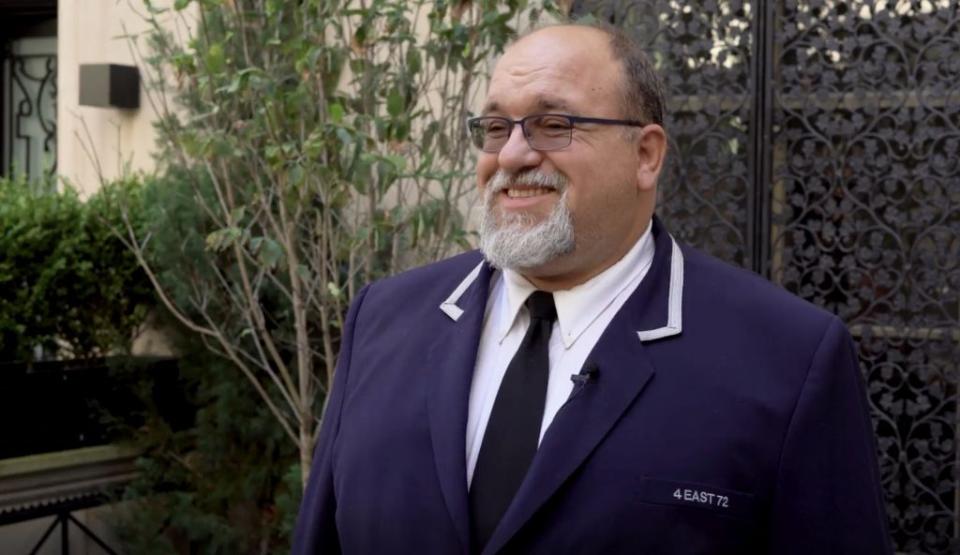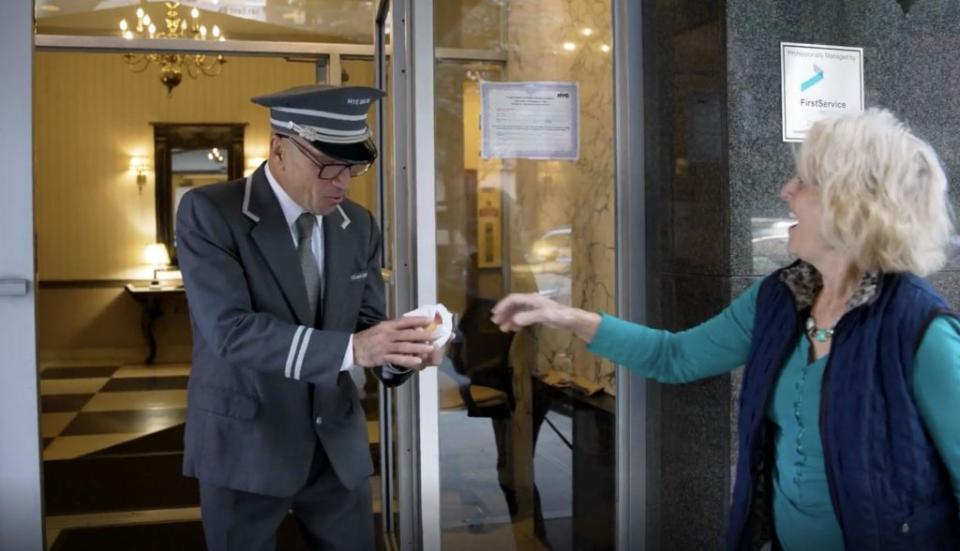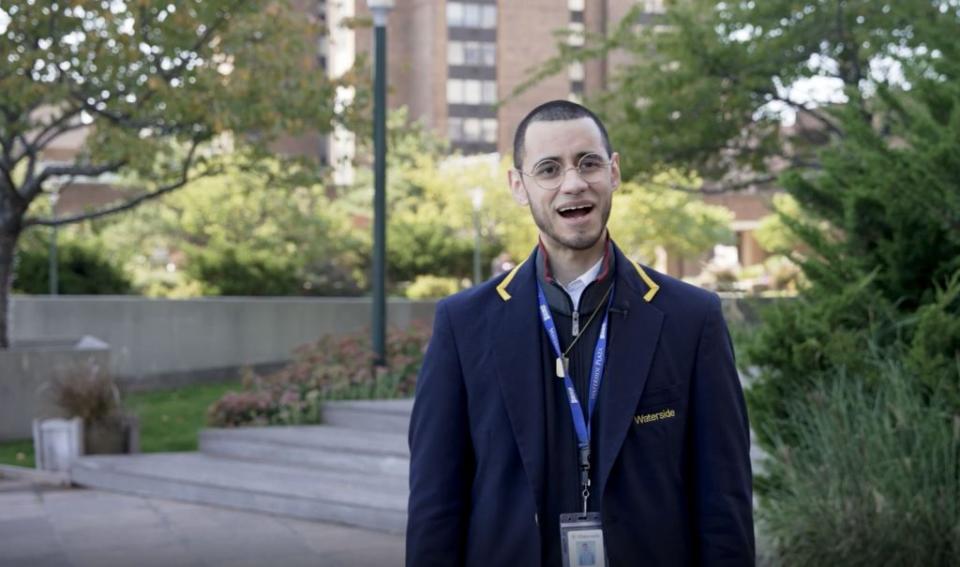We may earn commission from links on this page, but we only recommend products we believe in. Pricing and availability are subject to change.
Inside the mysterious lives of New York City doormen: ‘Our job is to blend in’
A uniformed doorman in New York City is as ubiquitous as a Yellow Cab driver.
Door people have been around for around 162 years and while some consider them to be an antiquated status symbol for luxury apartments, tenants consider them to be multi-hyphenate necessities for everyday living.
But while there are over 27,000 door people in New York, little is known about the profession. And to them, that’s the point.
“I like to say, being a doorman, you’re a part of the furniture,” Jan Eggers, a doorman on the Upper East Side, told Inequality.org during the April union strikes. “Our job is to blend in and make our tenants’ lives easier, and it takes a certain skill set to accomplish that.”
On paper, the role sounds deceptively simple: Few prerequisites, no formal training, no degree required. But it’s a position that’s nearly impossible to get because most people who have the job hold it for decades.
Eggers, for example, has worked for 25 years and has watched tenants grow up during his time as a doorman and elevator operator.

“What I’ve really enjoyed is watching small children — from when I started — become adults with families of their own now visiting their parents,” he told In The Know.
It’s truly a people person’s job; even though there’s no experience requirement for the role, a personality that fits the building’s needs is a must. To even know if there’s an opening in a building usually means you have to know someone on the inside.
Jose Soto, another doorman on the Upper East Side, told In The Know that he’s stuck around for 24 years because of the connections he’s made with the building residents.
“It feels really good knowing that I helped them out,” Soto explained. During Soto’s interview, a tenant happened to walk by and hand him an apple, just because. “Some people make me feel part of their family.”

Ted Martinez, 30, is one of those rare cases who found an open doorman position in recent years. Martinez has been a doorman for four years now after starting out as a porter and works in the Waterside Plaza apartments in Manhattan. He said he’s learned a lot from his tenants and recently became fascinated with neurology after getting to know a neurologist in the building who encouraged Martinez to start meditating when things got stressful during the pandemic.
“I do feel like a part-time therapist at times,” Martinez said. “It comes with the job, but it’s usually good conversations.”

Soto agreed with the therapy sentiment. The position is not just about accepting packages or cleaning the lobby (although, as Eggers noted, there is a lot of cleaning to do).
“Sometimes we feel like a therapist, sometimes we feel like a psychologist, sometimes we feel like a doctor,” Soto added.
A major allure of the position is that it’s unionized. The last time the union went on strike was in 1991 — although there have been a couple of close calls since, including one in early 2022. For decades, the position has always been predominantly held by immigrants, who find the job security and protection of the union too good to pass up.
“The union is important to me because they have our backs on issues,” Soto said. “We fight and stick up for each other and that’s what makes us strong and ultimately what makes this a good job.”
Residential building service workers have 100% employer-paid health care, paid vacation in addition to 10 sick days annually and access to free legal representation for immigration law and family law cases. The average salary is around $40,000. The union represents 32,000 porters, door people, superintendents, concierges and handypersons who work at and maintain over 3,000 buildings throughout New York City.
“The union also helped me put my kids through school,” Soto added. “My kids have graduated from Cornell University, Columbia University and Lehman College.”
Out of 27,000 door people in New York City, 753 are women, according to the union’s latest numbers. The inclusion of women has been slow, especially in an already diverse industry, with the number of door women having increased by around 400 employees since a New York Times report from 2012.
“I wish there were more women,” doorwoman Marilyn Rivera told The Atlantic in 2016. At the time, Rivera had been working at the Windsor Court Towers in Manhattan for 24 years. “This is a great job for a lot of women, especially if you are a people person. I’m 4’11” and I can handle it.”
The post Inside the mysterious lives of New York City doormen: ‘Our job is to blend in’ appeared first on In The Know.
More from In The Know:
'Condescending' chef girlfriend berates boyfriend over leftovers: 'I am not your staff'
Little girl records secret message to her future siblings 4 years before passing from cancer

 Yahoo Finance
Yahoo Finance 